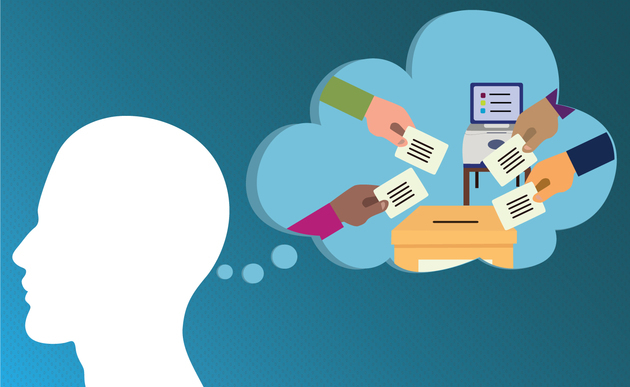Politics it is the activity performed by the citizen when exercising his rights in public affairs through his opinion and his vote.
The word political has its origins in the Greek word “polis” which means “city”. In this sense, it determined the action taken by the Greek city-states to normalize the coexistence between its inhabitants and with the neighboring city-states.
Definition
The policy seeks a consensus for peaceful coexistence in community. Therefore, it is necessary because we live in society and because not all its members think alike.
The policy exercised within the same state is called domestic politics and between different States, it is called foreign policy.
One of the first to explain the concept of politics was the philosopher Aristotle. In his book "Politics" he defines that this is a means to achieve citizens' happiness. For this, the government must be fair and the laws obeyed.
But, for a State to be well organized politically, it is not enough for it to have good laws, if it does not take care of their execution. Compliance with existing laws is the first part of a good order; the second is the intrinsic value of the laws to which one is submitted. In fact, one can obey bad laws, which happens in two ways: either because circumstances do not allow for better ones, or because they are simply good in themselves, not fitting the circumstances.
In the nineteenth century, when the industrialized world was consolidating, the sociologist Max Weber defined:
Politics is the aspiration to reach power within the same State among different groups of men that compose it.
Members of the same society can make politics when they want improvements in civil society. Today, in Western democracies, citizens can participate in politics through associations, unions, parties, protests and even individually.
We see, then, that politics goes much further than a political party, professionals and institutions.
Public policy
Public policies may sound like a redundancy, as the government would be the main responsible for the political conduction of society.
However, the government has several attributions such as guaranteeing the functioning of the economy and justice, ensuring the defense of the territory, and finally, the well-being of citizens.
When a specific problem arises that needs a particular solution, then we will have the so-called public policy.
Therefore, we define public policy as government actions to solve a public problem after analysis and evaluation.
Likewise, public policy must rely on the participation of citizens to solve problems that affect civil society.

social policy
Social policy is intended to be a restructuring of society in order to distribute wealth more equally.
The social policy aims to guarantee minimum conditions for citizenship such as housing, health, education and ecological awareness.
Tax Policy
Fiscal policy will be the set of measures that the government will take to ensure the balance of a State's accounts.
If a state spends more than it collects on taxes, the government will take steps to reduce this, as its debt will grow. In this way, it can privatize public companies or even reduce workers' salaries.
Monetary policy
Monetary policy consists of controlling inflation, the interest rate and the amount of money circulating in a country.
Those responsible for conducting monetary policy are the Central Banks and the Ministries of Economy of a State that dictate the economic rules of a country.
Government
Politics is also the art or doctrine relating to the organization of States and the government is responsible for this mission.
Over time, its concept has changed and forms of government have been adapted to new social and economic demands.
Thus, we have several political regimes such as:
- Monarchy
- Dictatorship
- Theocracy
- Oligarchy
- Tyranny
- Republic
- Demagogy
- Aristocracy
- Liberalism
- Socialism
- Fascism
Political party

With the Industrial Revolution, societies became more complex. Before, most of the population was dispersed in the countryside and politics was decided by a small group of people who belonged to the same social class: the aristocracy.
After industrialization there was a rural exodus causing cities to gain more and more importance. Two new characters appear on the scene: the bourgeois and the worker.
With the harsh working conditions in the factories, workers began to organize themselves in unions and associations in order to demand better living conditions. In turn, the bourgeois also began to demand guarantees and facilities for their businesses from governments.
With the socialist, anarchist and liberal ideas that emerged in the 18th and 19th centuries, citizens began to have a wide range of opinions about the best way to govern a state.
In this way, politics began to organize itself into parties, with their supporters and critics of each of these banners.
In general, Western political ideas are divided into right, center and left.
- Right – maintenance of social classes with privileges for the rich, free competition, direct negotiation with the employer, etc.
- center – defense of free trade with the basic rights of assured workers, etc.
- Left – defends the abolition of social classes, the equal distribution of wealth, guarantee of workers' rights, etc.
read more:
- What is history?
- census vote
- halter vote
- female vote in Brazil
- Manichaeism
- Sociology in Enem: what to study
